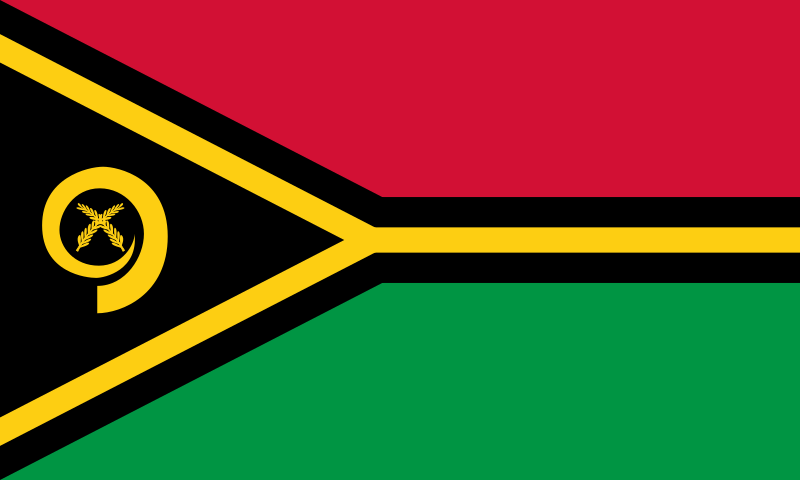 Vanuatu (/ˌvɑːnuːˈɑːtuː/ (help·info) vah-noo–AH-too or /ˌvænˈwɑːtuː/ van-WAH-too), officially the Republic of Vanuatu (French:République de Vanuatu, Bislama: Ripablik blong Vanuatu), is an island nation located in the South Pacific Ocean. The archipelago, which is of volcanic origin, is some 1,750 kilometres (1,090 mi) east of northern Australia, 500 kilometres (310 mi) northeast of New Caledonia, west of Fiji, and southeast of the Solomon Islands, near New Guinea.
Vanuatu (/ˌvɑːnuːˈɑːtuː/ (help·info) vah-noo–AH-too or /ˌvænˈwɑːtuː/ van-WAH-too), officially the Republic of Vanuatu (French:République de Vanuatu, Bislama: Ripablik blong Vanuatu), is an island nation located in the South Pacific Ocean. The archipelago, which is of volcanic origin, is some 1,750 kilometres (1,090 mi) east of northern Australia, 500 kilometres (310 mi) northeast of New Caledonia, west of Fiji, and southeast of the Solomon Islands, near New Guinea.
Vanuatu was first inhabited by Melanesian people. Europeans began to settle in the area in the late 18th century. In the 1880s France and the United Kingdom claimed parts of the country, and in 1906 they agreed on a framework for jointly managing the archipelago as the New Hebrides through a British-French Condominium. An independence movement arose in the 1970s, and the Republic of Vanuatu was created in 1980.
The four mainstays of the economy are agriculture, tourism, offshore financial services, and cattle raising. There is substantial fishing activity although this industry doesn’t bring in much foreign exchange. Exports include copra, kava, beef, cocoa, and timber, and imports include machinery and equipment, foodstuffs, and fuels.
In contrast, mining activity is unsubstantial. While manganese mining halted in 1978, there was an agreement in 2006 to export manganese already mined but not yet exported. The country has no known petroleum deposits. A small light-industry sector caters to the local market. Tax revenues come mainly from import duties and a 12.5 percent VAT on goods and services. Economic development is hindered by dependence on relatively few commodity exports, vulnerability to natural disasters, and long distances between constituent islands and from main markets.
Vanuatu culture retains a strong diversity through local regional variations and through foreign influence. Vanuatu may be divided into three major cultural regions. In the north, wealth is established by how much one can give away. Pigs, particularly those with rounded tusks, are considered a symbol of wealth throughout Vanuatu. In the centre, more traditional Melanesian cultural systems dominate. In the south, a system involving grants of title with associated privileges has developed.
Notes from Wikipedia








